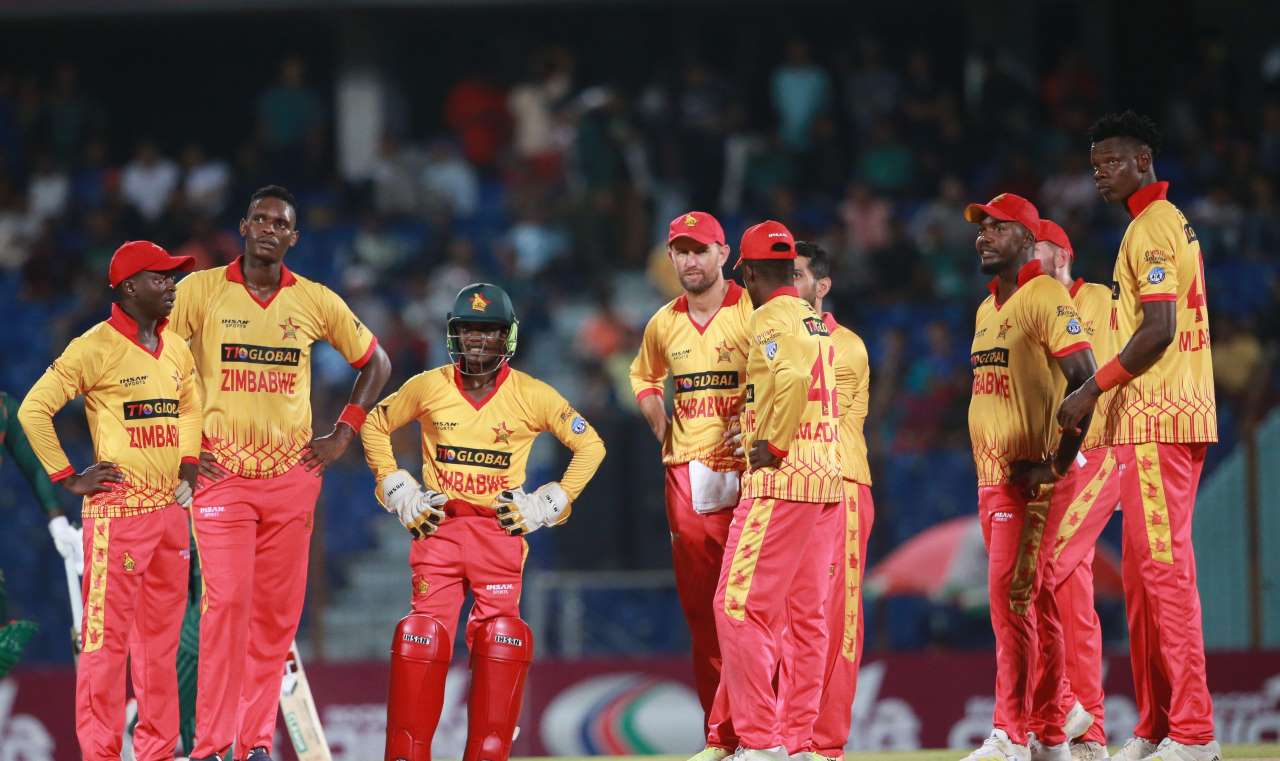The downfall of Zimbabwe cricket is one of the most striking examples of how politics, governance failures, and financial mismanagement can derail a once-promising sports nation. Zimbabwe once stood as one of the rising forces in world cricket. With legendary players like Andy Flower, Heath Streak, and Tatenda Taibu, the team had moments of brilliance on the international stage. However, over the years, Zimbabwe cricket has faced a tragic downfall driven by political interference, financial mismanagement, and international suspensions. In this blog post, we explore the downfall of Zimbabwe cricket, the causes behind it, its impact, and the hopes for resurgence.

The Golden Era: Zimbabwe Cricket in the 1990s and Early 2000s
In the 1990s, Zimbabwe emerged as a competitive side in world cricket. With players like the Flower brothers, Alistair Campbell, and Heath Streak, the team achieved notable victories. In the 1999 Cricket World Cup, Zimbabwe stunned top teams and qualified for the Super Six stage. This period is often referred to as Zimbabwe cricket’s golden era.

Key Achievements:
- Test status granted in 1992
- Victory over Pakistan and India in 1999 World Cup
- Top ten ICC rankings in both Test and ODI formats
The Beginning of the Downfall
Political Interference and the Black Armband Protest
The turning point came in 2003 during the Cricket World Cup co-hosted by South Africa. Andy Flower and Henry Olonga wore black armbands to mourn the “death of democracy” in Zimbabwe. This act of defiance led to both players retiring from international cricket and ignited political tensions.
Player Exodus and Selection Bias
Following political interference in selection and administration, many top players left. Heath Streak, Craig Wishart, and Tatenda Taibu all exited the team amidst accusations of racism and unfair selection practices.
Financial Mismanagement
Zimbabwe Cricket (ZC) was plagued by corruption allegations and mismanagement of funds. Players often went unpaid, leading to strikes and team instability.

ICC Sanctions and International Isolation
In 2004, Zimbabwe voluntarily withdrew from Test cricket due to poor performances and internal strife. In 2019, the ICC suspended Zimbabwe Cricket due to government interference, banning the team from participating in ICC events.
Consequences:
- Exclusion from Test matches
- Reduced funding from ICC
- Decline in world rankings
Signs of Recovery: Can Zimbabwe Cricket Bounce Back?
Despite the turmoil, there have been signs of hope. Zimbabwe returned to Test cricket in 2011 and has shown flashes of talent through players like Sikandar Raza and Sean Williams. Administrative reforms and renewed focus on grassroots development may help rebuild the system.
Rebuilding Efforts:
- ICC reinstated ZC in late 2019
- Revival of domestic cricket leagues
- Appointment of experienced coaches and advisors

FAQ’s
1.Why did Zimbabwe cricket collapse?
Zimbabwe cricket collapsed due to a mix of political interference, player walkouts, financial mismanagement, and international sanctions from the ICC.
2.What was the black armband protest in Zimbabwe cricket?
In 2003, players Andy Flower and Henry Olonga wore black armbands during a World Cup match to protest against the Zimbabwean government’s policies, calling it the “death of democracy.”
3. Is Zimbabwe still playing international cricket?
Yes, Zimbabwe still plays international cricket but with limited success. The team was reinstated by the ICC and continues to participate in Test, ODI, and T20 formats.
4. Who are the key players in Zimbabwe cricket today?
Notable players include Sikandar Raza, Sean Williams, Blessing Muzarabani, and Ryan Burl.
5. Can Zimbabwe cricket return to its former glory?
With structural reforms, financial discipline, and talent development, Zimbabwe has the potential to rise again in international cricket.
Conclusion
The downfall of Zimbabwe cricket is a cautionary tale about the dangers of political interference in sport. While the glory days seem distant, the spirit of Zimbabwean cricketers remains strong. With proper governance, talent nurturing, and international support, Zimbabwe cricket can aim for a resurgence.












